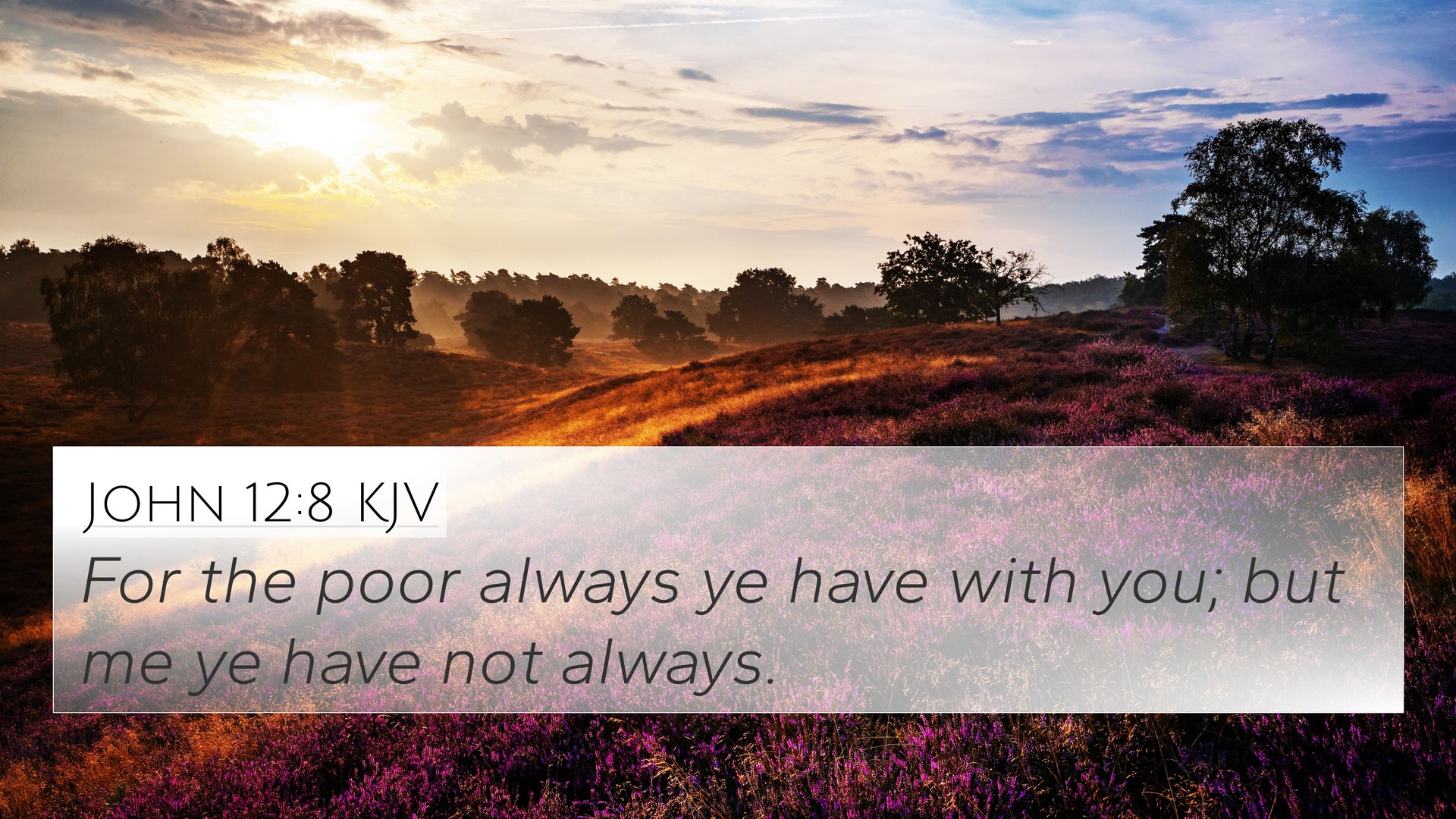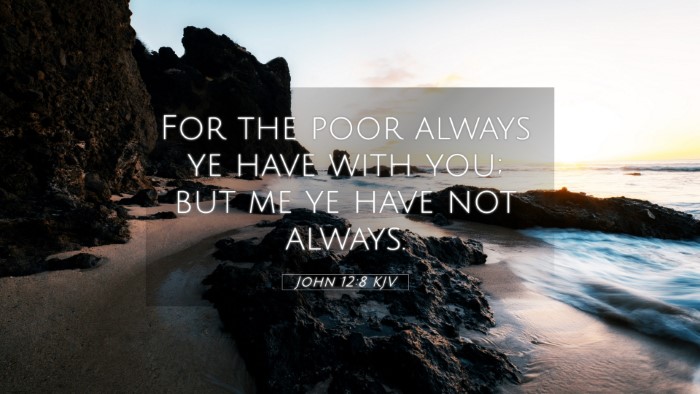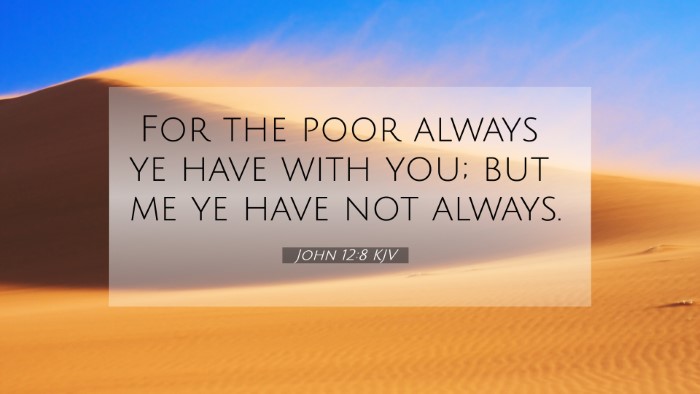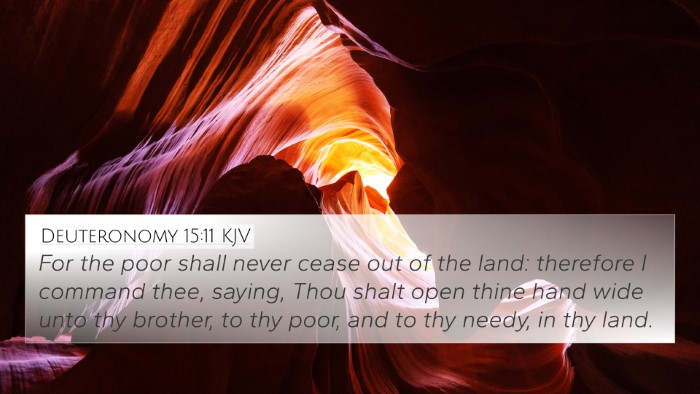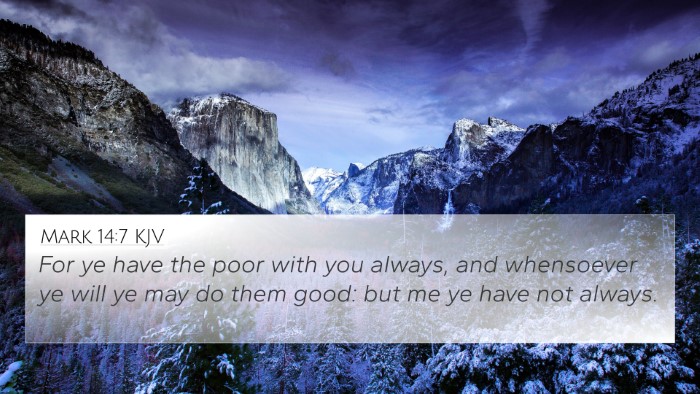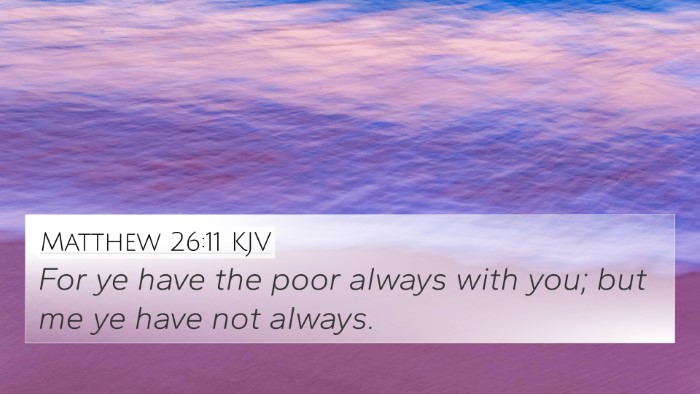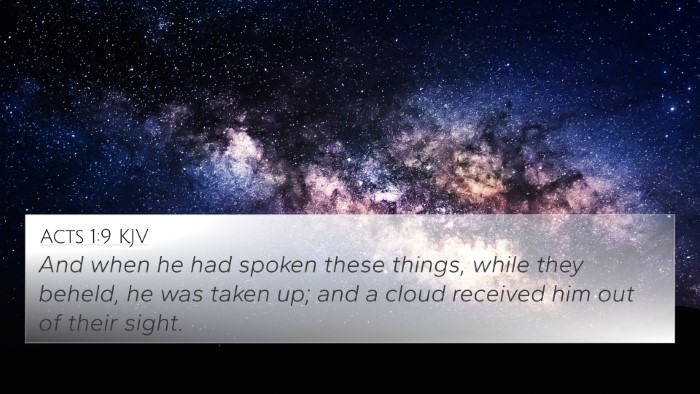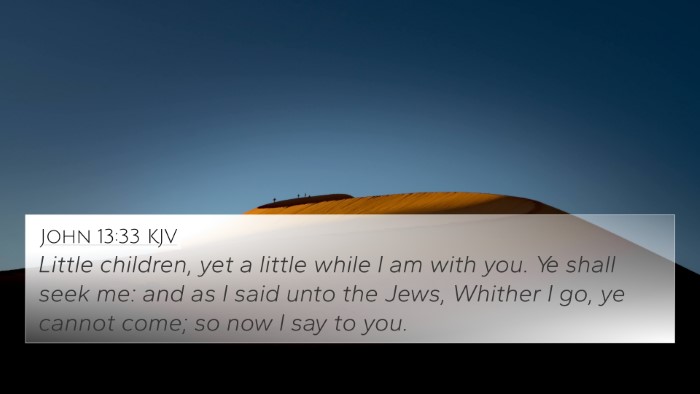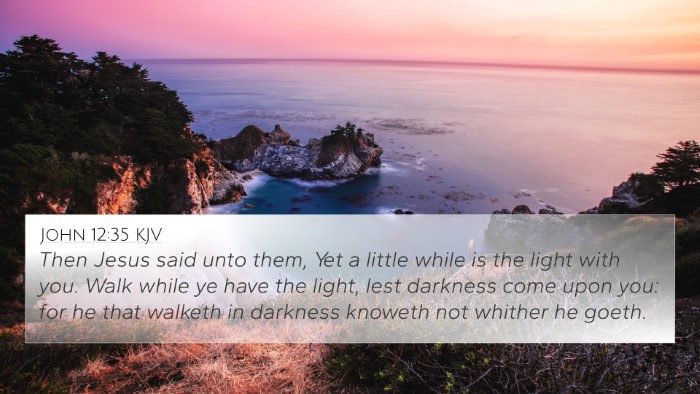Understanding John 12:8
John 12:8 states: "For the poor always ye have with you; but me ye have not always." This verse encapsulates a profound moment during Jesus' ministry, which highlights the importance of prioritizing divine engagement over temporal concerns.
Verse Meaning and Context
In the context of John 12, Jesus is nearing the end of His earthly ministry, and Mary anoints Him with costly ointment, sparking criticism from Judas Iscariot. This verse serves as a poignant response to that criticism. Below are insights from various public domain commentaries that elucidate the meaning of this verse:
- Matthew Henry:
Henry emphasizes that while there will always be opportunities to help the poor, the unique and limited opportunity to honor Christ must take precedence. His focus on the transient nature of Jesus’ presence invites believers to act with urgency in their devotion to Him.
- Albert Barnes:
Barnes comments on the implication that our duty towards the poor is a lasting one. However, his reference to Jesus’ limited time on earth stresses the importance of recognizing the fleeting moments we have to serve and worship Him. This indicates that our spiritual priorities might sometimes need to override social concerns.
- Adam Clarke:
Clarke reflects on the intention behind Jesus’ statement, suggesting that it illustrates a reward for sincere worship. He infers that the devotion showcased by Mary was a significant act that deserves recognition amid ongoing social issues like poverty.
Bible Verse Connections
This verse has various implications and connections to other scriptures that resonate with its themes of prioritization in spiritual service and the presence of Christ. Here are some notable cross-references:
- Deuteronomy 15:11: "For the poor will never cease out of the land; therefore I command thee, saying, Thou shalt open thine hand wide unto thy brother, to thy poor, and to thy needy, in thy land."
- Matthew 26:11: "For ye have the poor always with you; but me ye have not always."
- Mark 14:7: "For ye have the poor with you always, and whensoever ye will, ye may do them good: but me ye have not always."
- Luke 4:18: "The Spirit of the Lord is upon me, because he hath anointed me to preach the gospel to the poor; he hath sent me to heal the brokenhearted, to preach deliverance to the captives, and recovering of sight to the blind, to set at liberty them that are bruised."
- John 14:27: "Peace I leave with you, my peace I give unto you: not as the world giveth, give I unto you. Let not your heart be troubled, neither let it be afraid."
- James 2:5: "Hearken, my beloved brethren, Hath not God chosen the poor of this world rich in faith, and heirs of the kingdom which he hath promised to them that love him?"
- 1 John 3:17: "But whoso hath this world's good, and seeth his brother have need, and shutteth up his bowels of compassion from him, how dwelleth the love of God in him?"
Inter-Biblical Dialogue
The connections between these verses and John 12:8 reflect a broader theological discussion on the needs of the community and individual devotion to Christ.
- Jesus' focus on spiritual priorities (e.g., communal needs and personal devotion).
- The recurring theme of the poor in both testaments highlights the continuous obligation of believers.
- Illustrates the need for balance between social responsibility and spiritual devotion.
Tools for Bible Cross-Referencing
In understanding scripture, tools such as a Bible concordance, cross-reference Bible study, and other Bible reference resources can greatly enhance your study of connections between verses. They allow for deeper insights into the interlocking themes across different texts.
Conclusion
John 12:8 exemplifies a crucial lesson about the prioritization of spiritual engagement with Jesus over ongoing earthly commitments to do good works. The thematic connections and cross-references underscore the complex interplay between worship, duty, and faith found throughout Scripture.
